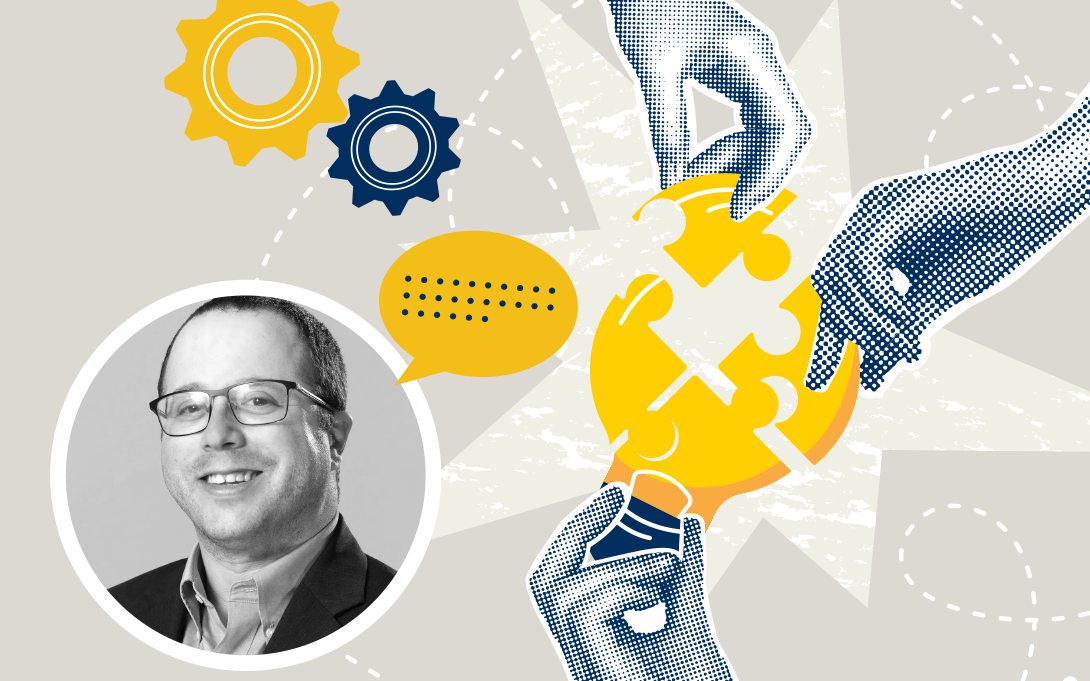
Empowered bureaucrats can make decisions that will lead to better and more efficient service for citizens, according to Dan Honig, author of “Mission Driven Bureaucrats: Empowering People To Help Government Do Better.”
In a Policy Talk at the Ford School, "Empowering Bureaucrats to do Better", Honig said, "It seemed like we almost always missed the humans inside the system.” In discussion with Ford School professor and co-founder of the Better Government Lab, Don Moynihan, he continued, “we almost always treated those who worked in the public sector as if they were part of the problem, not part of the solution, and that felt to me likely wrong.”
“Our default assumption should be that we need more empowerment,” said Honig. He explained that there are generally two ways to manage bureaucrats: managing for empowerment or managing for compliance. In his experience, he said, “I am unaware of empirical evidence that pushes towards more compliance being a better solution.” Honig said these bureaucrats make governments across the world function as well as they do.
“Only by caring about and supporting and enabling those individuals are we going to get the public services that we deserve,” said Honig, especially “if we want those folks to be in front of us in times of crisis.” He explained that if the environment is not supportive the most motivated bureaucrats are the first to leave. To solve the image problem of bureaucrats–being associated with laziness, inefficiency, and red tape–he said, we need to “personalize the bureaucrats, we make clear how they are human.” This he said is also “how we get out of the legitimacy problem” facing bureaucracy.
One problem facing bureaucrats is the highly compliance-based environment. “Sanctions-based accountability not only responds to distrust, it creates distrust,” if you treat someone like you need to monitor them, Honig says, “You will induce in them the very behavior you meant to root out.” As for DOGE and Elon Musk’s group of “the cleverest kids” controlling the American bureaucracy, Honig said we may get “some studies that show some welfare gains but, it will not lead to a thriving democratic polity. It will not lead to something that feels resilient to growing populism.”
Moynihan also explained how it can be hard to see the successes of policies of empowerment and autonomy at the local level because “it’s tied to the collapse of media coverage of state and local governments.” He said, “You have less ability to read your local newspaper and know a lot about how government is working, and that is a relatively new phenomenon.”
Honig hopes that this administration or perhaps its aftermath “opens up the opportunity to build a new kind of politics to build a politics steeped in the lived experience of citizens and that helps make the citizens human as seen by the state and makes the people who work for the state humans as seen by the citizens.” But for now, he said, “I am unconvinced that it is harder in America today than it was in Somalia when I was working there or in Liberia when I was dealing with the ministry of finance,” even in struggling countries, there is “always a substantial number of mission-driven bureaucrats.”
“I think right now we are a cautionary tale that is not without hope,” said Honig. He concluded that "the strength of America’s democracy is going to be a product not just of what all of us think, but of what all of us do over the years to come.”
